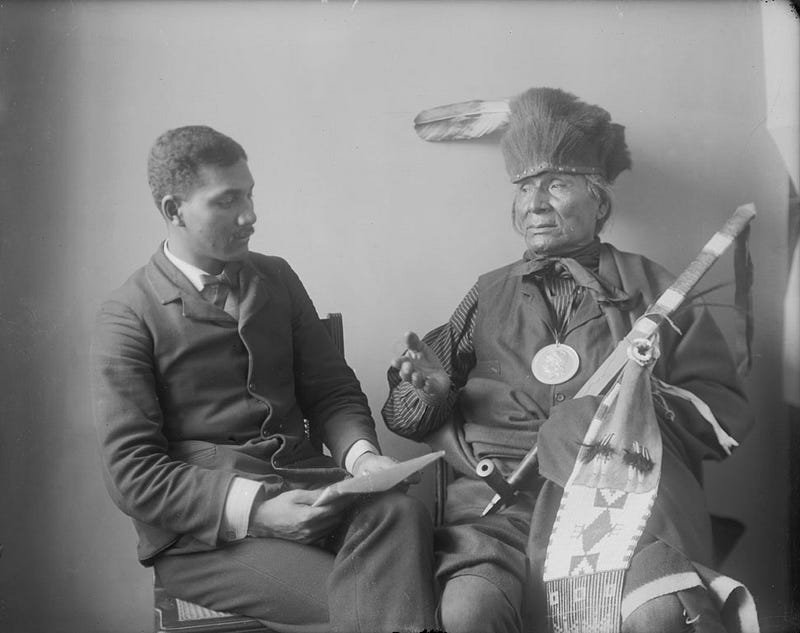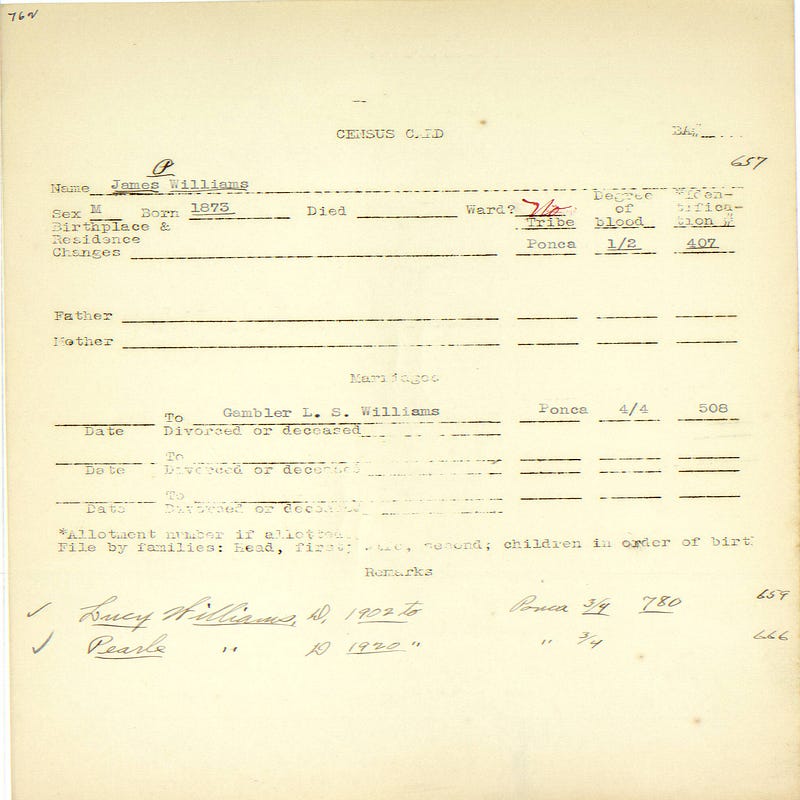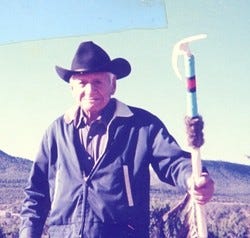Oklahoma is home to 39 federally-recognized Native-American tribes and has the most in the country. The state’s name literally means “Land of the Red Man” in the Choctaw language, and is home to the largest tribal nation in the country, the Cherokee Nation of Oklahoma. Many residents in Oklahoma can trace themselves back to Native ancestors, whether it be from actual tribal rolls or family lore. I am a 5th generation Oklahoman. My family came here either by the Trail of Tears or the Great Migration West. Both sides have Native ancestry which come from the Ponca, Seminole, Choctaw, Chickasaw and Yankton Sioux Nations. I am enrolled Ponca and I identify myself as primarily Ponca, Seminole and Black. As a result of this background, I had something of a “dual identity” growing up.
My community was predominantly black, but I was very much so connected to my Native side as well. My mother’s family is Ponca predominantly with some Yankton ancestry that came into our family before the forced location to Oklahoma. My father’s side was mainly Southeastern (three of the "Five Civilized Tribes"). It seemed that I was one of the few of African descent in the Ponca tribe before I discovered James “Pretty Hair” Williams. His story was one that needed to be told. I was determined to be the storyteller.
I discovered Williams nearly two years ago on a Facebook page dedicated to Native-American photos. I am always excited to find Ponca photos but his photos were especially striking. He was clearly of mixed African descent. The first photo showed Williams by himself and the one after showed him with a tribal elder, a man by the name of “Hairy Grizzly Bear.” It looked as though he was writing down something the Ponca elder was saying. It was clear that Williams was an interpreter. I was determined to find out more about him because he was clearly an important figure in the tribe.

James P. Williams was born between 1870 and 1875. He was the son of Ponca and black parents. It is not clear if he was born to a Ponca woman and a Buffalo Soldier (this is one theory) or a Black woman and a Ponca man. A photo I found online shows that his mother was “a negro” and father, “an Indian.” Williams was a small child on the Ponca Trail of Tears, so this fact makes it tricky to know which parent was Ponca. Nebraska’s black population was only 15 before the Civil War. After the territory banned slavery, it grew into nearly 800 by 1870. Williams’ black parent was more than likely a product of the Great Migration north, since he was born in the original Ponca homelands.
James was a student at Haskell in 1898 and 1899, but studied at other schools including Hampton (Littlefield). It was shown that he accompanied the tribal council to Washington D.C. in 1899, and was a witness to a signed report by Standing Buffalo, a chief of the tribe. Williams more than likely accompanied the tribe to several places in his role as an interpreter. He married Gambler Little Snake, a full-blood Ponca woman and would have at least four children. It is shown that Williams was the chief of the tribe at some point in his life as indicated by his son, John, who also served as a Ponca tribal chairman.

In an interview conducted by Leonard Maker in 1970, John Williams spoke of his father’s dedication to education. He was adamant about his children being educated as well as productive citizens. He also described how his father spoke of their ancestors and the time of removal. Parrish Williams, another son of Williams’ would go on to be a beloved tribal elder and central figure in the NAC. He was the oldest member of our tribe until his death in 2009 at the age of 97. He was also one of the last fluent speakers of the language.

As indicated by both sons, it is apparent that Williams was just as much, if not more dedicated to keeping the Ponca culture alive. Williams’ appearance heavily showed his black features and it is unknown of how he was treated by other tribal members. It is unknown if he identified as biracial or chose not to because of the treatment he would receive. The Black and Native American experience is one that is truly unique. It is one that brings so much joy but also so much pain. Luckily, most of my Ponca family loved me and accepted me as I was. I would pray that James P. Williams had the same experience. Judging by the era, it is safe to say he faced obstacles.
This is only an excerpt of his story that I would like to tell. There is so much more to the story and legacy of James P. Williams that will be uncovered. Stay tuned.
